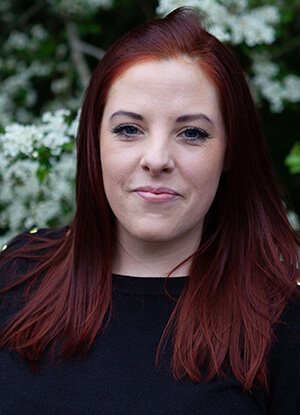Pint of Science
Posted on

A venue by the sea, normally the haunt of young adults seeking a retro party with ’The Spice Girls' was instead hosting an excited audience learning about the wonders of our planet earth. Night one of the three-day Pint of Science festival was held in Popworld in Morecambe.
Despite some technical difficulties, the evening went very well, with a diverse and fascinating series of talks about ponds, air purification, evolution and net zero. After eight months of planning and organising, the first evening was done. I was exhausted, another two nights to go!
All three nights went fantastically well. There were some obstacles that we could not control, perhaps the most frustrating was battling with the noise of a rescheduled football game and fans in one of the pub venues, despite having specifically chosen an evening when no football was on. Technical difficulties and equipment limitations meant we had to roll with the punches and adapt to what was available to make sure the night was inclusive and ran smoothly, and for the most-part it was and did.
Is science just for scientists? Absolutely not. Science is for everyone. This is what the Pint of Science festival, hosting a series of accessible talks about science in local pubs, is all about: bridging the gap between scientists and the public.
Science communication is often a challenge even within the scientific community, but it’s even more of a challenge communicating science to the public. But it is also very important.
Within the scientific community, it helps to foster new working relationships and collaborations and it’s a great way to get ideas and to keep up to date with what’s going on in other fields.
Connecting with the wider, non-scientific community is also vital to help create a collaborative community of experts and non-experts. This helps to support science, and its wider social applications. Being up to date on the latest scientific knowledge can also improve people’s day-to-day lives, health and wellbeing, and helps to keep our home, the Earth, safe and healthy.
Since starting my career in science, I have taken an interest in science communication, especially outreach events. When I learned that Lancaster University was becoming involved with Pint of Science in 2020, I jumped at the chance to be involved, but then the pandemic hit. Two years later, we were finally allowed to put on in-person events again, so Dr Ali Birkett and I started what felt like a mammoth organising job. We needed to make sure we had enough people, funding, suitable venues and, of course, engaging speakers and talks. We were very excited when we received 11 responses to our volunteer recruitment drive from early career researchers who would form our organising team. It was a really big ask, with the busy schedules that these researchers have, but everyone went above and beyond.
There were also many things to consider in making the events accessible, both in terms of making the science understandable and making the events physically accessible to a diverse group of people with different needs. This was a learning curve.
With our limited finances, we were incredibly lucky to have good venues willing to host our events - we were even offered two spaces for free. This meant we were able to fund the whole festival for less than £200.
We had some amazing feedback from more than 100 people of all ages (from school children to retired people) who came to our events. Comments such as ‘fabulous’, ‘fascinating’, ‘engaging’, ‘very informative and readily accessible', ‘really good fun’, ‘can’t wait for next year’s talks.’
The festival wasn’t perfect, but we can learn from any mistakes to make next year even better. The whole experience was stressful, but so rewarding. I met a wide range of people that I wouldn’t have had the opportunity to meet or work with otherwise.
It was also fascinating learning about some of the work that is going on in other departments within the university. I spoke with the public about their interests in science and why they came along. I was put out of my comfort zone and had to practice many skills, including management, advertising and marketing, problem-solving and public speaking. The experience reinforced my interest in communicating science and it is certainly something I will be seeking to do more of in the future.
Author profile

Miranda Burke is a third-year PhD researcher with the Waitrose Collaborative Training Partnership. Her research aims to reduce food waste in the supply chain. She is very passionate about making positive changes. She is interested in science communication and outreach, and in improving science policy to make a real impact.
Learn more about doing a PhD at the Lancaster Environment Centre
Disclaimer
The opinions expressed by our bloggers and those providing comments are personal, and may not necessarily reflect the opinions of Lancaster University. Responsibility for the accuracy of any of the information contained within blog posts belongs to the blogger.
Back to blog listing

